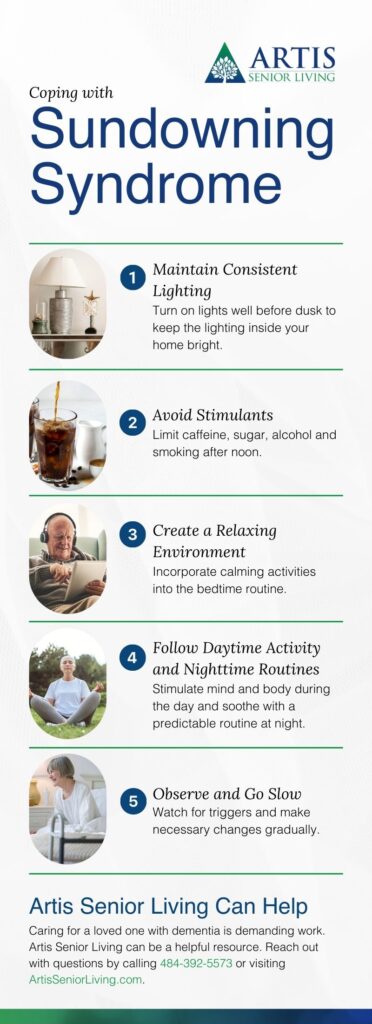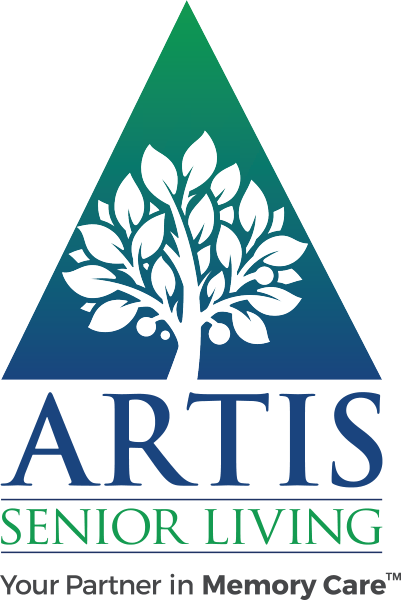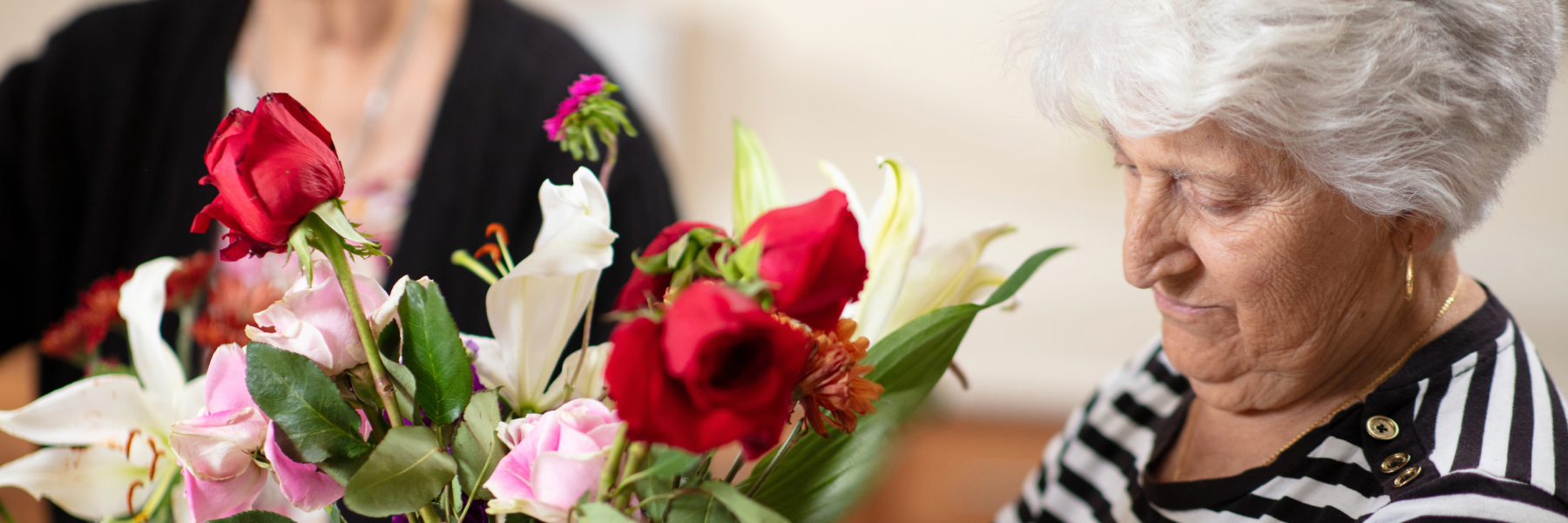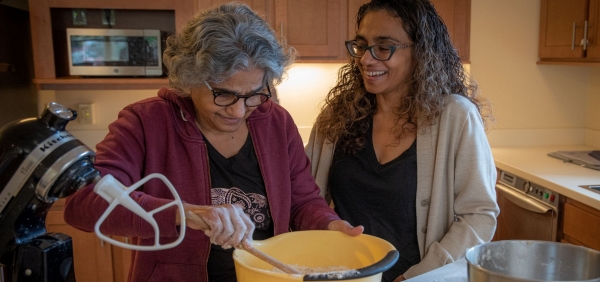5 Ideas to Help Sundowning Syndrome

Sundowning, or sundown syndrome, is common symptom of Alzheimer’s disease and other forms of dementia that can affect your loved one’s behavior during the transition from day to night. Symptoms of sundowning can include confusion and disorientation at nightfall, with behaviors that range from pacing to irritation and yelling. As a loved one, it can be difficult to watch someone you care about become distressed each night, but thankfully there are things you can do to help curb the symptoms of sundowning. Take a look at Artis Senior Living Management’s top five ways to help soothe the symptoms of sundowning.

1. Maintain Consistent Lighting
The transition between day and night is when sundowning symptoms can become most aggravated. For this reason, one of the best things you can do is create an environment for your loved one where there is limited exposure to dusk lighting. Make sure the lighting inside your home is bright, and be sure to turn on lights well before dusk. If you notice your lighting in specific rooms create long shadows, consider switching out light bulbs for brighter ones and close blinds if possible.
2. Avoid Stimulants
Steering clear of stimulants in the afternoon is a great way to ensure that your loved one is set up for a restful night. By avoiding things like caffeine, sugar, alcohol, and smoking after noon, you can help reduce triggers that can lead to a stressful night for both you and your loved one.
3. Create a Relaxing Environment
Create a soothing area where your loved one can enjoy their nighttime routine. Choose activities and sounds that are calming, like reading a book together, watching their favorite television program, or listening to relaxing music. If they are still feeling overwhelmed, try engaging with them through conversation, a calming game, or singing. Sometimes providing a gentle distraction is enough to help soothe sundowning syndrome.
4. Daytime Activity & Nighttime Routine
A restless mind and body can lead to a higher chance of sundowning syndrome. If possible, try to add in activities into your loved one’s everyday. Whether it’s a few short walks, or an engaging puzzle, keeping stimulated is good for the mind and body. As the day transitions to night, it’s important to stick to a routine in order to make your loved one feel secure in a time of day that can be otherwise distressing for them.
5. Observe and Go Slow
The best thing you can do to better understand the effects of sundowning syndrome is observe your loved one’s behaviors. Some people find that keeping a detailed log of their loved one’s routine can help, as it can pinpoint triggers. You know your senior family members and loved ones better than anyone, and by watching their behaviors, you will be able to identify what can easily soothe them or what seems to set off their symptoms. Keep in mind that it’s important to make changes to routine slowly to prevent further confusion and anxiety.
Artis Senior Living Can Help
With our focus on positive partnerships and holistic approach to dementia care, Artis Senior Living can be a valuable resource as you navigate the caregiver’s journey. Find helpful information on our blog, or attend an educational event for caregivers. Or if a loved one is ready for specialized, 24-hour dementia care, contact us to learn more about our unique philosophy of personalized care.



